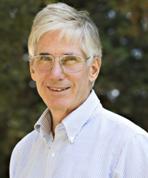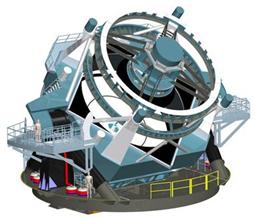Speaker: Dr. J. Anthony Tyson , Director LSST, University of California
Time: Friday, 10:00 AM, Dec. 2, 2011
Location: NAOC A601
 Tony Tyson is the Director of the Large Synoptic Survey Telescope. His research interests are in cosmology, dark matter, dark energy, observational optical astronomy, experimental gravitational physics, and new instrumentation. He has been a Distinguished Professor of Physics at UC Davis since 2003. He received his Ph.D. degree from University of Wisconsin in 1967 and was a Member of the Technical Staff at Bell Laboratories from 1969 to 2003. Honors: member American Philosophical Society, member National Academy of Sciences, Aaronson Memorial Prize, Fellow, American Academy of Arts and Sciences, and Fellow, American Physical Society.
Tony Tyson is the Director of the Large Synoptic Survey Telescope. His research interests are in cosmology, dark matter, dark energy, observational optical astronomy, experimental gravitational physics, and new instrumentation. He has been a Distinguished Professor of Physics at UC Davis since 2003. He received his Ph.D. degree from University of Wisconsin in 1967 and was a Member of the Technical Staff at Bell Laboratories from 1969 to 2003. Honors: member American Philosophical Society, member National Academy of Sciences, Aaronson Memorial Prize, Fellow, American Academy of Arts and Sciences, and Fellow, American Physical Society.
Abstract

Over the past decade, sky surveys such as the Sloan Digital Sky Survey have proven the power of large data sets for answering fundamental astrophysical questions. This observational progress, based on a synergy of advances in telescope construction, detectors, and information technology, has had a dramatic impact on nearly all fields of astronomy, and areas of fundamental physics. The next-generation LSST sky survey will maintain this revolutionary progress. The hardware and computational technical challenges and the exciting science opportunities are attracting scientists and engineers from astronomy, optics, low-light-level detectors, high-energy physics, statistics, and computer science. The history of astronomy has taught us repeatedly that there are surprises whenever we view the sky in a new way. Some of LSST’s science will rely on the statistical precision obtainable with billions of objects. For the first time, the full sky will be surveyed deep and fast, opening a new window on a universe of faint moving and distant exploding objects as well as unraveling the mystery of dark energy.













